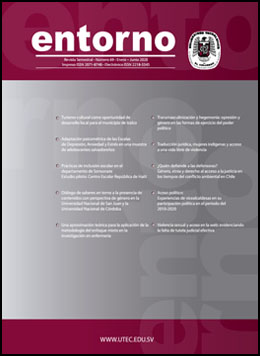Transmasculinization and hegemony: gender and oppression in the different forms of exercise of political power
DOI:
https://doi.org/10.5377/entorno.v0i69.9565Keywords:
Hegemony - Latin America, Androcentrism - Latin America, Social inequality - Latin America, Women in politics - Latin America, Political power - Latin America, Gender discrimination - Political aspects - Latin AmericaAbstract
The research theorizes about the form of the exercise of political power where the politically relevant subject or social actor who, regardless of their gender identity, is conditioned by the environment in which they display their social relationships, pressing or constituting their identity and becoming as subject subject to those social or political mandates typical of the power he holds.
When women manage to gain access to a position of power, they continue to be judged by male “assimilation patterns” and, by not fitting that model, they are discriminated against, questioned or judged in their political role, observing that the reaction of some women in positions of power, is to adopt hegemonically accepted male forms and models. Therefore, the research gives an account of the nature of this phenomenon: it is a consequence of the androcentric model socially accepted in a cultural environment where masculinity, with all its models and ways of exercising power, is the hegemonically accepted.
Downloads
625
Downloads
Published
How to Cite
Issue
Section
License
© Entorno
It is required that the authors transfer the right of re-production of their articles to the Entorno Journal

